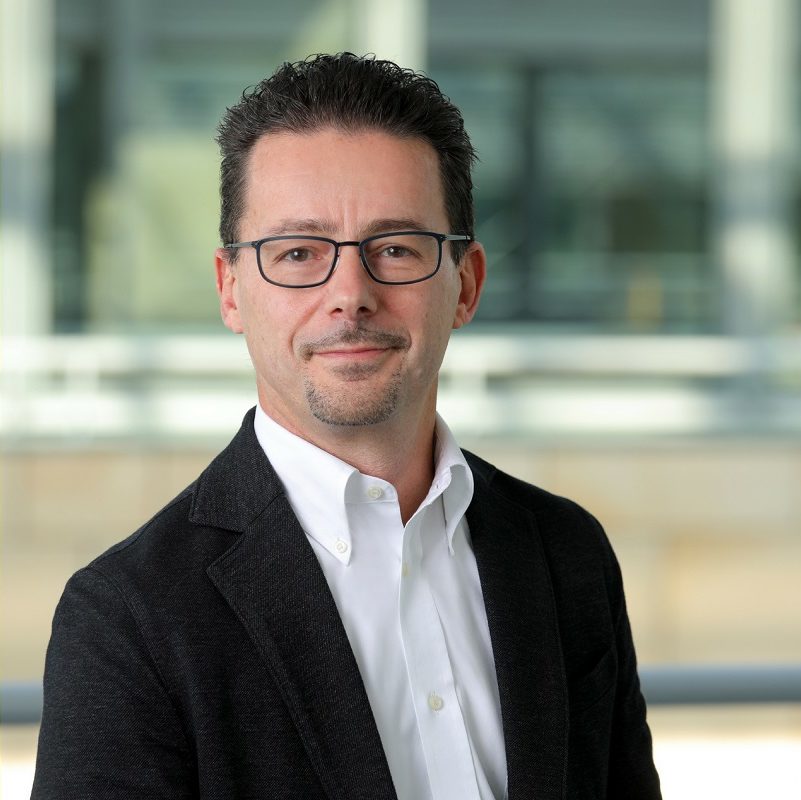
“As a sportsman I know how to motivate people!”
Interview with Umberto Raiteri, Head of Take-back Solution, Landbell Group
The startup that is going to win the 2018 Green Alley Award will have to convince the seven members of the jury first. Not a simple task. But who are these judges, anyway? Get to know the 2018 jury in our series of interviews and find out about their professional background, the greatest circular economy challenge and their tip for a successful pitch.
# What is your professional background and how will it help you judge the six finalists of the Green Alley Award 2018?
Professionally, I think the startups could learn a lot from my experience as a CEO of the European Recycling Platform, which I helped create from scratch 15 years ago. At that time, ERP was a bit like a startup, going through all the typical startup development stages and growing from first three, then 10 employees to 50 and 100 employees until it finally became part of Landbell Group. With ERP I went through the whole spectrum of starting a business from practical questions right at the beginning to the creation of three-year business plans. This means, that I exactly know how to build up a company, to grow it and make it successful.
The finalists could also profit from my experience in various positions and international business contexts: I have an engineering background and worked at Electrolux for 20 years. Here I started at the factories before being promoted to several executive positions, and learned a lot on how to produce, sell and market products. As part of this multinational Swedish company for household goods I worked in different countries, from Sweden to Belgium, Ireland and Italy and experienced different management styles.
On a personal level I am really looking forward to support people that are creative and have ideas. As a sportsman and coach of an American Football Team I know how to motivate people, which will also be an important skill for startup founders.
# In your opinion, which are the key challenges for a circular economy in Europe?
Several challenges come to my mind but I will focus on one challenge, which is a big factor if you want to apply the circular economy concept in the right way: The question is, how can the circular economy become a driver for the use of recycled materials? Today, all producing companies depend on volatile raw material prizes. Even if companies want to avoid the use of raw materials and use more recycled materials, they have to face a very unstructured and unreliable market for these secondary materials. The macroeconomics of this market are not stable, since they depend on raw material prizes: If raw material prizes go up, the demand for recycled materials might increase. If raw material prizes fall, then the demand for recycled materials will be low.
This means that the costs are not reliable, the projections for the use of recycled materials are not reliable and the instability becomes a constant risk factor for companies. For example, if a producer suddenly decides to use only recycled plastics for his products because he wants to improve his green image, then the market development would depend on this single producer’s attitude or new strategy. It is not projectable what other producers would do and if they would follow his example. This makes it very difficult to identify trends and developments in the market for recycled materials and reliable projections are not possible.
Maybe, one of the Green Alley Award finalists this year will have a solution for this problem.
# What are your tips on how to deliver the perfect pitch at the Green Alley Award finals in Berlin?
I have three tips for the finalists: First, show passion for your project and that you believe in what you are doing rather than focusing on too many figures from your business plan. Second, show that you have been realistic in all your assumptions and that your startup idea is not just a dream. A good reality check is to prove that you have already involved relevant stakeholders. Third, don’t forget the commercial side of your business: Show how you will win potential customers and convince them of your offer. The task is to sell your product, service or technology! Therefore, you have to consider how to create a demand and market your offer in real life.
Find the interviews with the other Jury members of the Green Alley Award 2018 here: